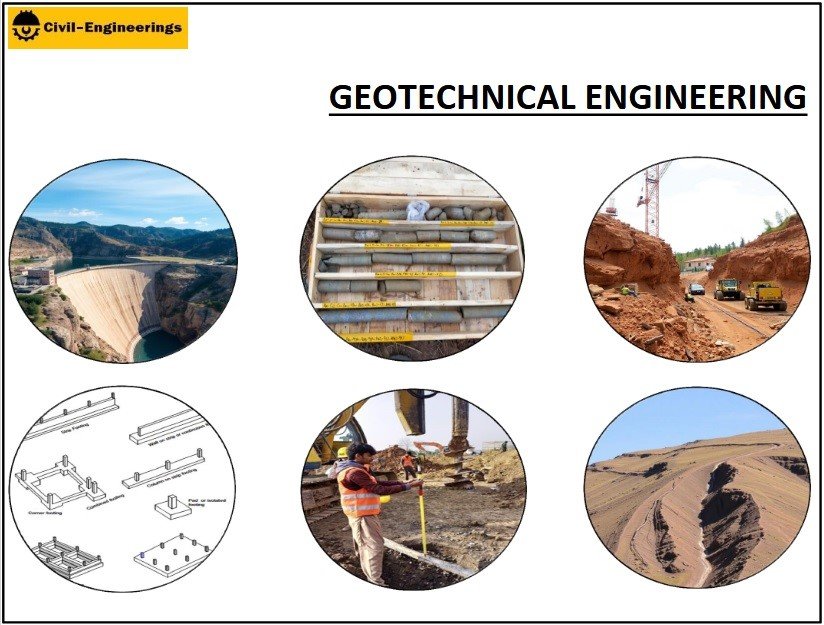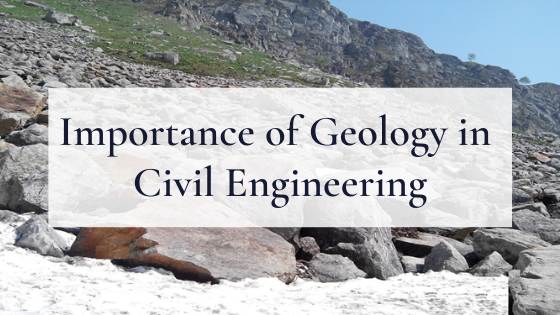Specialized Geotechnical Engineering Solutions Can Be Fun For Everyone
Specialized Geotechnical Engineering Solutions Can Be Fun For Everyone
Blog Article
All about Specialized Geotechnical Engineering Solutions
Table of ContentsThe Definitive Guide to Specialized Geotechnical Engineering SolutionsThe Main Principles Of Specialized Geotechnical Engineering Solutions The Best Guide To Specialized Geotechnical Engineering SolutionsOur Specialized Geotechnical Engineering Solutions Diaries
They perform website investigations, accumulate examples, perform research laboratory examinations, and evaluate information to review the suitability of the ground for building and construction projects. Based on their searchings for, geotechnical engineers give recommendations for structure style, incline security, preserving frameworks, and mitigation of geotechnical dangers. They collaborate with various other specialists, such as designers, architectural engineers, and construction teams, to guarantee that geotechnical factors to consider are incorporated into the total job design and execution.
Foundation Design: Geotechnical engineers play a critical function in making foundations that can securely support the desired structure. They examine the soil problems and tons requirements to establish the appropriate foundation type, such as shallow foundations (e.g., footings), deep structures (e.g., heaps), or specialized methods like soil improvement. They take into consideration factors such as settlement limitations, birthing ability, and soil-structure interaction to establish optimal foundation layouts.
The Ultimate Guide To Specialized Geotechnical Engineering Solutions
Below are some kinds of geotechnical engineers: Foundation Engineer: Structure engineers specialize in making and analyzing structures for frameworks - Specialized Geotechnical Engineering Solutions. They assess the dirt conditions, tons needs, and website attributes to determine one of the most suitable foundation type and layout, such as superficial structures, deep foundations, or specialized methods like pile foundations
They perform field screening, accumulate examples, and evaluate the gathered data to characterize the soil properties, geologic developments, and groundwater problems at a site. Geotechnical Instrumentation Engineer: Geotechnical instrumentation designers concentrate on tracking and measuring the behavior of soil, rock, and frameworks. They mount and maintain instrumentation systems that check elements such as soil settlement, groundwater degrees, slope movements, and architectural displacements to examine performance and offer early cautions of potential problems.
In the workplace setting, geotechnical engineers make use of specialized software devices to carry out estimations, create layouts, and analyze data. Specialized Geotechnical Engineering Solutions. They prepare records, testimonial task specs, communicate with clients and staff member, and coordinate task activities. The workplace setup supplies a conducive atmosphere for research, analysis, and collaboration with various other specialists associated with the job
They often see job sites to carry out site investigations, evaluate geotechnical problems, and collect data for evaluation. These check outs include taking a trip to various places, sometimes in remote or difficult surfaces. Geotechnical designers might perform dirt sampling, conduct examinations, and monitor building activities to ensure check my site that the geotechnical aspects of the project are being applied appropriately.
The 10-Minute Rule for Specialized Geotechnical Engineering Solutions
Geotechnical designers additionally function in specialized geotechnical laboratories. Geotechnical research laboratory designers work extensively in these settings, managing testing devices, operating tools, and tape-recording information.
Keeping Walls: Producing wall surfaces that hold back dirt to protect against landslides and offer stability on sloped surfaces. Embankments and Earthworks: Designing embankments for roads, railways, and dams to ensure they continue to be stable under stress and anxiety. The mining industry depends heavily on geotechnical design to make certain the safety and security and durability of its operations.
With this in mind, we have designed our program to prepare trainees for success. The Geotechnical Engineering program at the University of Delaware supplies possibilities for innovative study and study in: Dirt and rock auto mechanics Soil-structure interaction Integral modeling Computational geomechanics Structure and earth frameworks design Ground improvement Incline stability and landslide stabilization Liquefaction of dirts and earthquake engineering Lab characterization of geomaterials and dirt reinforcement Ecological geotechnics Offered the solid demand for improvement to our country's infrastructurethe American Society of Civil Designers provided the U.S.
Geotechnical design is a branch of civil engineering; however, it includes making use of scientific methods and principles to collect and analyze the physical residential properties of the ground. Geotechnical designers are involved in all stages of the style of structures, from principle to building. Their job is necessary in the design and preparation procedure as they analyze the integrity of dirt, clay, silt, sand, and rock, before building starting.
Specialized Geotechnical Engineering Solutions Fundamentals Explained
This browse around this site is adhered to by a ground investigation based upon the findings of the desk research study and involves test pitting and tasting to reveal any type of potential concerns. Geotechnical engineers work within multidisciplinary groups, sustained by intermediate and younger designers along with by CAD technicians. As a senior geotechnical engineer on a hydro plant job, jobs might consist of joining technological evaluations (e.g., peer reviews), tailings clog evaluations, dam safety reviews, and other studies associated to the style and construction of mine waste facilities.
While some experts specialise only in geotechnics, others might work under titles like Discover More Here engineering rock hound or ground designer within similar capabilities. As a geotechnical designer, you'll require to: develop and preserve connections with customers and various other professionals associated with the site, throughout each projectmaintain safety criteria on site be mindful of price ramifications when you make recommendationsstudy geological maps and aerial photos from a variety of sources and from different time periodsexamine building and construction plans to see how practical they are based on your understanding of the siteinvestigate threats or geological hazards for the sitesearch for environmentally sensitive functions, such as garbage dump begin to create valid and interpretive ground modelsplan field investigationsdrill and analyse examples of bedrock, soil, groundwater and additional products manage various other specialists on sitesolve technical problems as they develop, such as unexpected structures at drill sitesmonitor conditions during and after building to ensure structures are stable in the brief and lengthy termadd data gathered on site to your preliminary researchcreate geotechnical estimations, illustrations, and 2 or three-dimensional computer models translating the datamake suggestions concerning the proposed use of the site.
There are great deals of chances to meet brand-new people, as you'll collaborate with a variety of professionals at every site. The job can be stressful as you might be in charge of the safety of others while on site. There is likewise a high level of monetary obligation, as the suggestions you make can have major cost ramifications.

Report this page